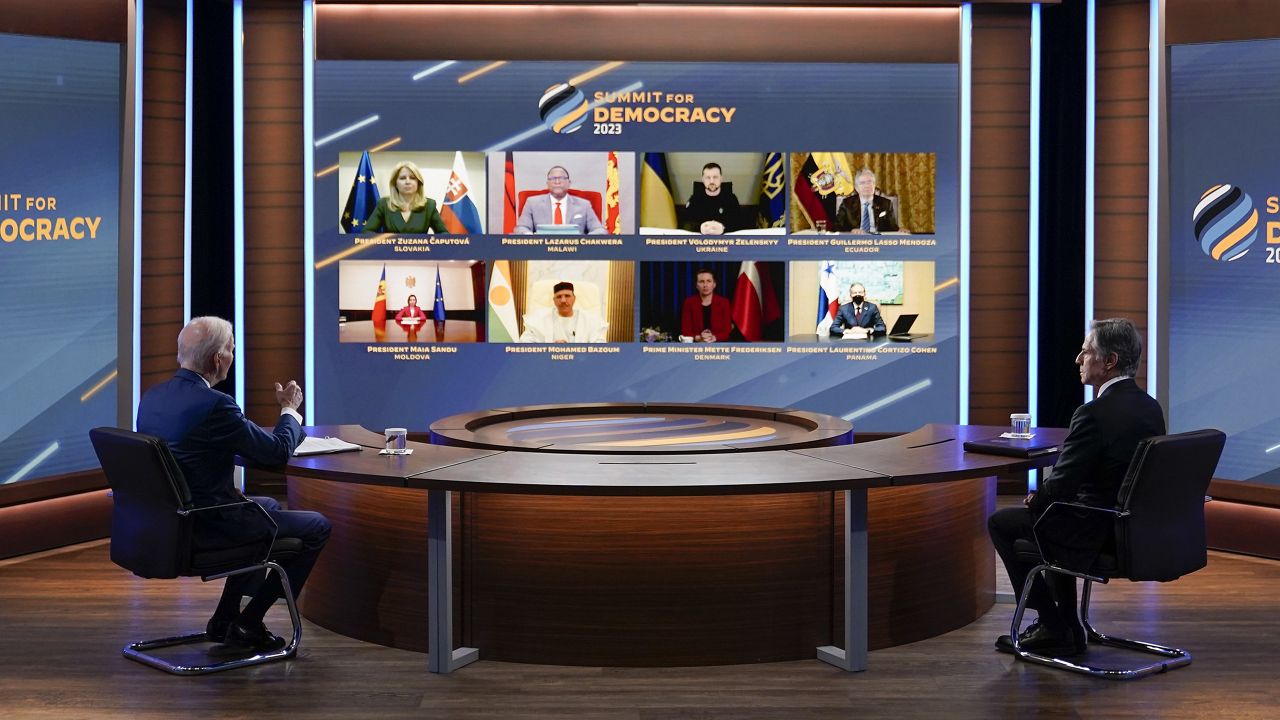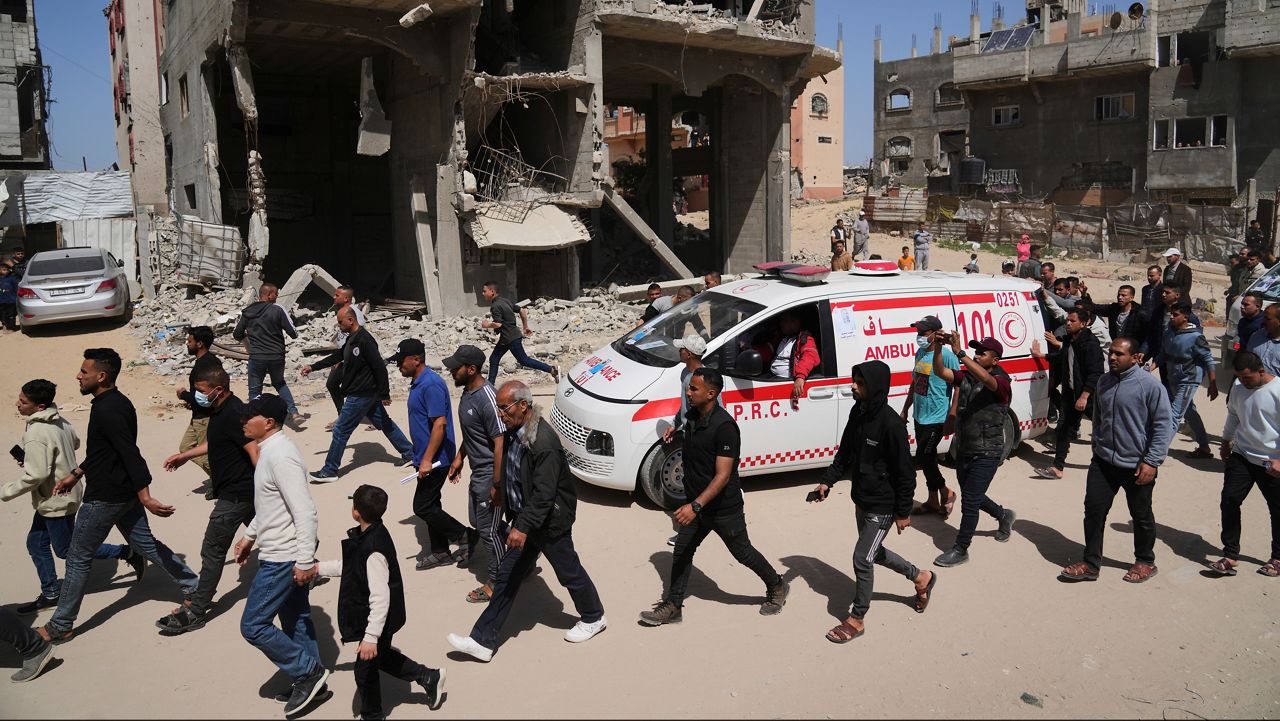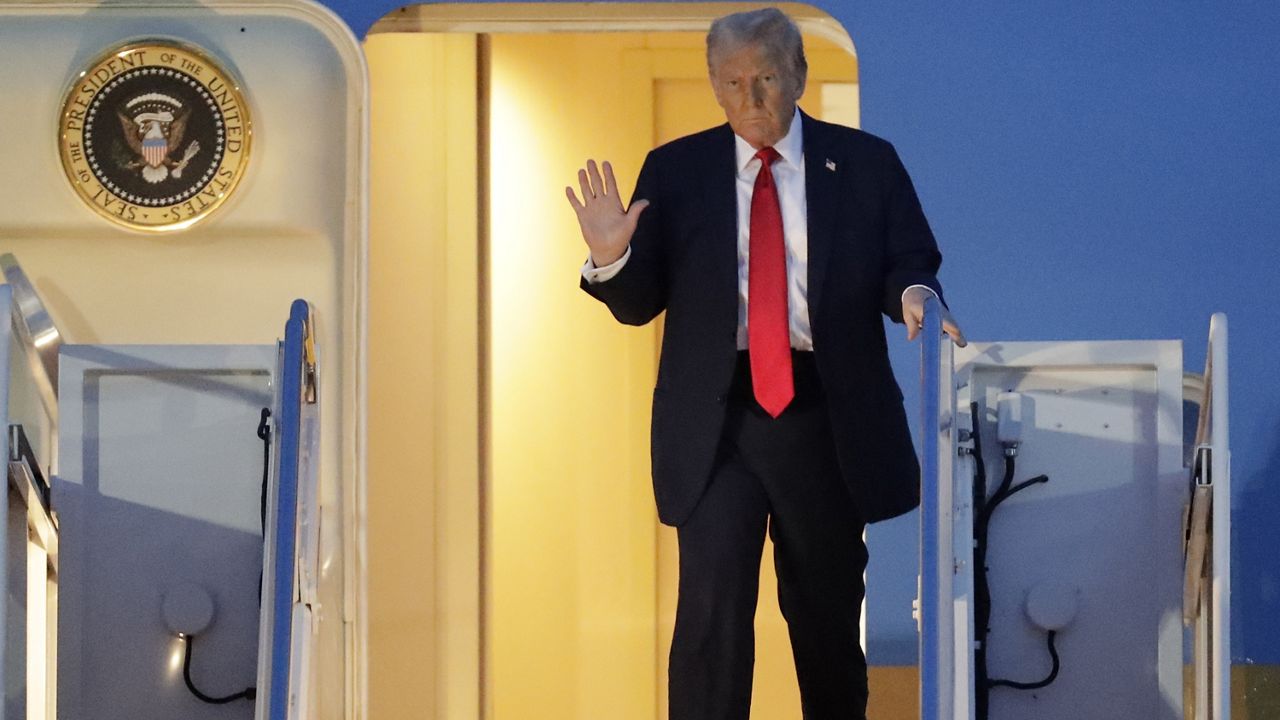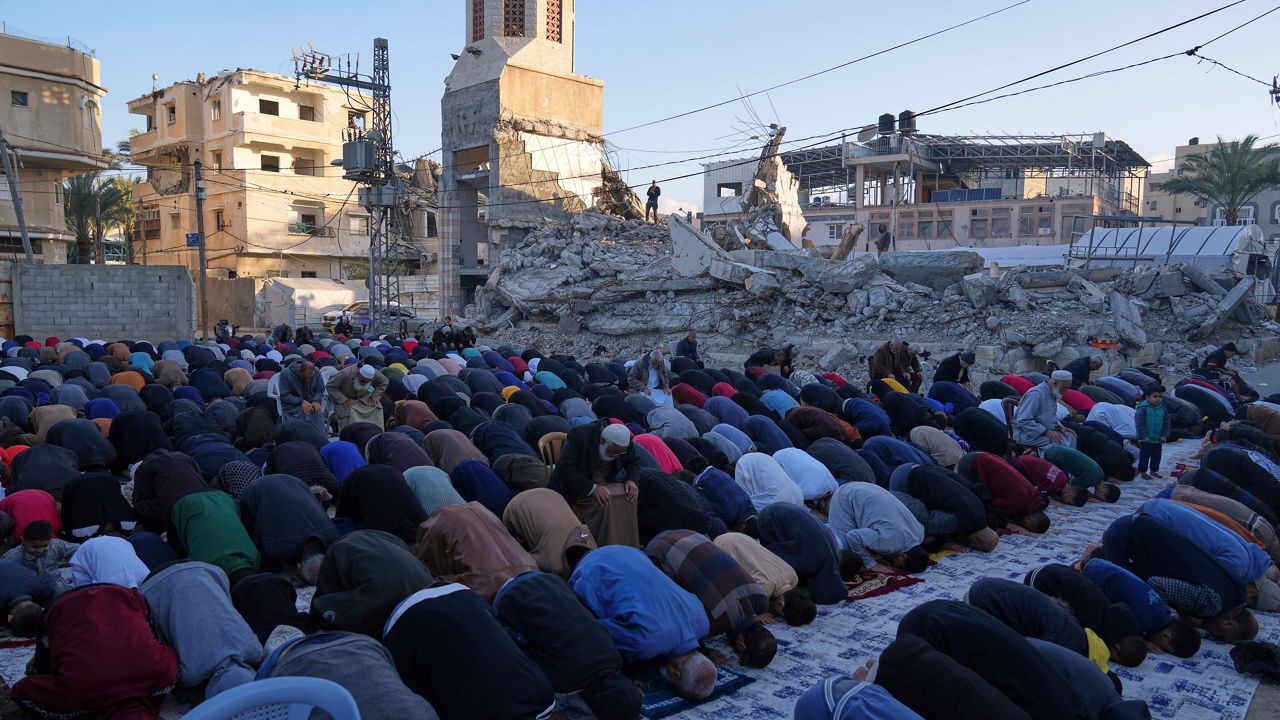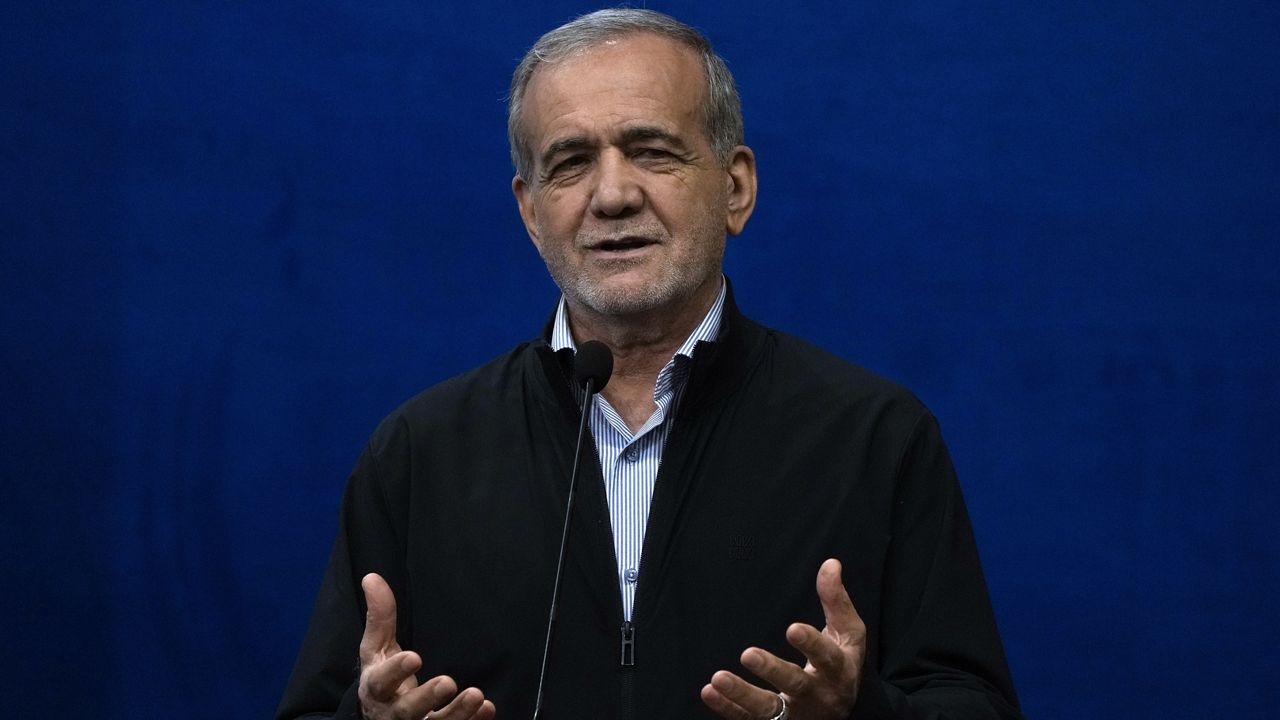President Joe Biden on Wednesday declared that efforts by nations banding together to protect and spread democracy are working despite Russia’s ongoing assault on Ukraine.
What You Need To Know
- President Joe Biden on Wednesday declared that efforts by nations banding together to protect and spread democracy are working despite Russia’s ongoing assault on Ukraine
- Speaking from the White House campus at the virtual Summit on Democracy, Biden repeated a line he said at the first summit in December 2021 that he considers strengthening democracy as “the defining challenge of our age"
- The United States is co-hosting the three-day event, which includes officials from 120 countries
- Ukrainian President Volodymyr Zelenskyy was among the leaders to speak at the start of Wednesday’s session
Speaking from the White House campus at the virtual Summit on Democracy, Biden repeated a line he said at the first summit in December 2021 that he considers strengthening democracy as “the defining challenge of our age.”
“Today, we can say with pride that the democracies of the world are getting stronger, not weaker. Autocracies of the world are getting weaker, not stronger,” Biden said in his remarks. “That's a direct result of all of us, all of us coming together with confidence in ourselves and conviction in our cause.”
The United States is co-hosting the three-day, which includes officials from 120 countries. The goal of the summit is to discuss critical issues facing democracies and spur action.
The 15 months since the initial summit have been dominated by Russia’s war with Ukraine. Ukrainian President Volodymyr Zelenskyy was among the leaders to speak at the start of Wednesday’s session.
He said many generations of people living in democratic countries don’t know from their own life experiences that freedom can be taken and have only learned about such struggles in history textbooks.
“But the experience of the enemies of freedom is always fresh,” Zelenskyy said. “They don't refer to textbooks. They know how to break democracy and destroy lives.
“This is why democracy is in danger.”
Zelenskyy said the war is not just about protecting Ukraine’s freedom and sovereignty.
“When you see Ukrainian cities burned by Russian aggression, when you see brave Ukrainian soldiers that stop the movement of the aggression through our land, notice what you are actually seeing,” he said. “This is deciding the fate of not only Ukraine; this is deciding the fate of everyone who is used to living freely.”
The Ukrainian leader said Russia has been at war with many of the countries participating in the summit through other methods, including disinformation campaigns, election interference, espionage, corruption and cybercrime.
“Ladies and gentlemen, this is work precisely against freedom and democracy,” Zelenskyy said.
Biden applauded democratic nations for their “unprecedented unity” in condemning Russia’s invasion of Ukraine and “standing in solidarity with the brave Ukrainian people as they defend their democracy.”
Biden also said the U.S. midterm elections in November – the first national vote since the Jan. 6, 2021, insurrection at the Capitol – were a victory for democracy.
“Voters resoundingly and roundly rejected the voices of extremism attacking and undermining our democracy,” he said, referring to far-right candidates who had questioned the results of the 2020 presidential election and then fared poorly in their own races.
The president touted the signing of the bipartisan Electoral Count Reform Act earlier this year. The legislation clarified the 1887 law governing the counting of Electoral College votes in Congress – a process former President Donald Trump sought to halt on Jan. 6, 2021, while he promoted false claims about widespread election fraud.
Biden also said he’s continuing to try to strengthen voting protections by pushing for Congress to approve the Freedom to Vote Act and the John Lewis Voting Rights Advancement Act, which stalled in the Senate in 2021. The bills include measures such as making Election Day a federal holiday, ensuring an early-voting period and no-excuse mail voting, ending extreme gerrymandering, and restoring the full protections of the Voting Rights Act of 1965. The bills, however, face even slimmer odds of passing today now that Republicans control the House.
“The right to vote, to have your vote counted is a threshold of democracy and liberty everywhere in the world,” Biden said. “And with it, anything is possible. Without it, in my view, nothing is possible.”
Biden announced a plan to spend an additional $690 million on his Presidential Initiative for Democratic Renewal, an expansion of the government’s efforts to defend and grow democratic resilience globally. The initiative was launched after the first Summit on Democracy with a $400 million investment from the U.S. government.
It focuses on advancing technology for democracy, supporting free and independent media, fighting corruption, bolstering human rights and democratic reformers, and defending free and fair elections.
The Biden administration plans to have spent $9.5 billion in the 2022-24 fiscal years *on supporting democracy, human rights and good governance around the world. However, that figure – and the $690 million announced Thursday – are contingent on congressional approval on the upcoming federal budget.
The other summit co-hosts are Costa Rica, the Netherlands, South Korea and Zambia. All countries that were invited in 2021 were invited again this year, as well as eight additional ones: Bosnia and Herzegovina, the Gambia, Honduras, Ivory Coast, Lichtenstein, Mauritania, Mozambique, and Tanzania.
Several U.S. partners, including Egypt and Saudi Arabia, and two NATO allies, Turkey and Hungary, were not invited.
The U.S. insists the summit invitations don’t necessarily reflect which countries are viewed as democratic.
"We're committed to supporting democratic institutions, human rights, rule of law, media freedom," John Kirby, spokesman for the White House National Security Council, told reporters prior to the event. “So decisions around whether to add countries to the summit invitation were made with all these themes in mind. Those that were newly invited in 2023 demonstrated clear political will to bolster the themes of the summit.”
Another NSC official said the summit looks for participants with “positive will to move in the right direction."




